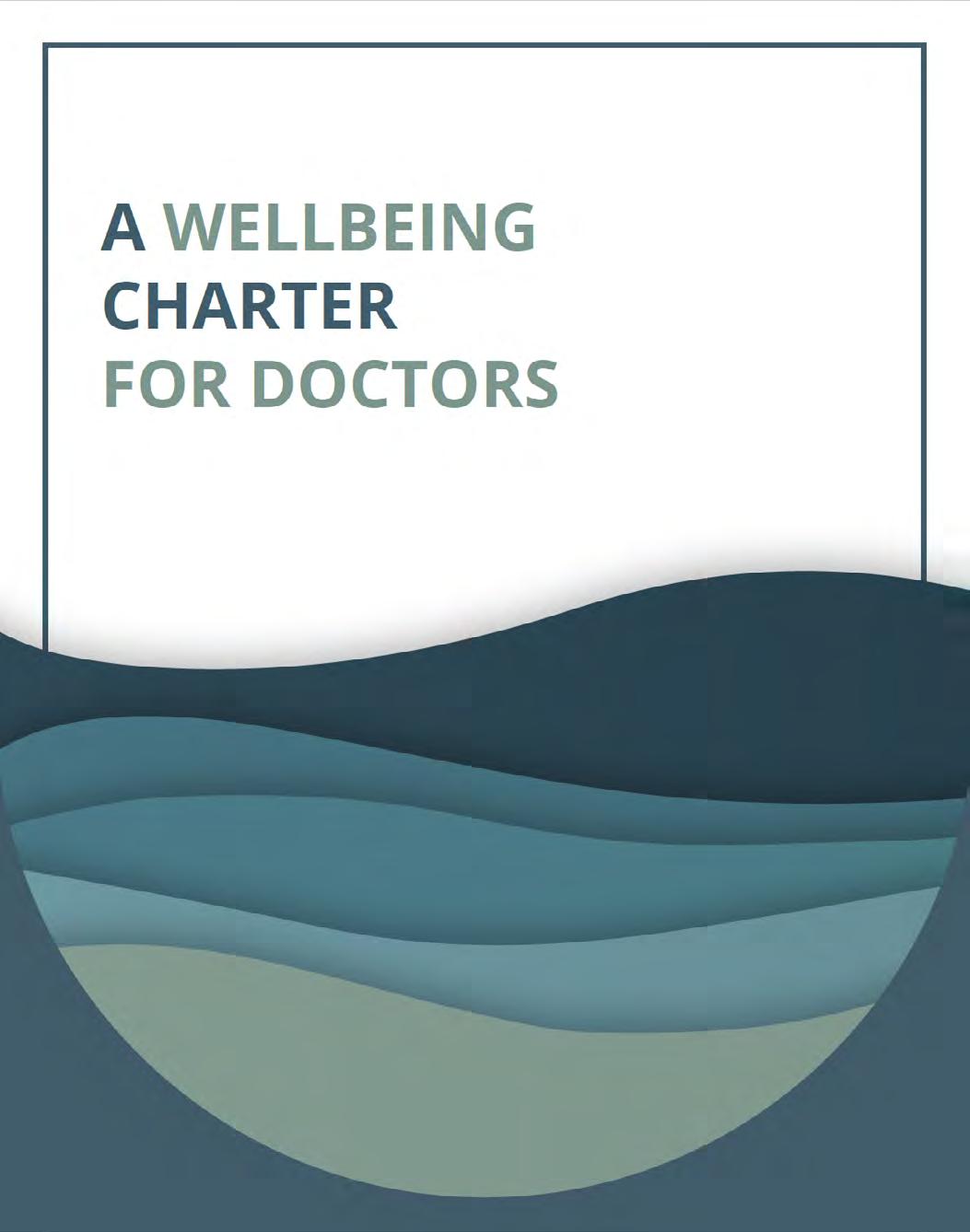
5 minute read
President’s perspective

We recently announced the results of the RACS Council elections for the leadership roles, including those of the president, vice president and treasurer. I was re-elected as president in accordance with the election process for Council officer bearers and Council Executive. Thank you for your vote. I look forward to continuing the work we started with your support. I am pleased to welcome my colleagues Professor Chris Pyke as vice president, Dr Greg Witherow as treasurer, Dr Adrian Anthony as censor-in-chief, and Professor Andrew Hill as the chair of the Professional Standards and Advocacy Committee. Congratulations to our other Council office holders who were re-elected and a warm welcome to our new Councillor Professor Deborah Bailey and co-opted councillors Dr Sharon Jay, representing our Trainee association, RACSTA, Dr Ailene Fitzgerald, representing ACT Fellows, and Dr Richard Badbury, representing the Northern Territory Fellows. I look forward to working with you to advance the College strategy and priorities. I’d like to thank Dr Lawrie Malisano, our outgoing vice president for his many years of service to Council and the College. Lawrie has been a great support to me in my role as president and his contributions during his years as a Councillor have been commendable. Lawrie and I have talked through several problems during the last year and his wise consideration has been extremely important. Thank you, Lawrie. As we embark on the important work ahead of us, advocacy continues to remain a strong priority area. We have the Australian federal elections taking place most likely in May 2022 and we have sent a list of election priorities to all the main parties contesting the election. If there is one thing the pandemic has taught us, it is that poor health outcomes lead to negative economic and societal outcomes.
Advertisement
This election we are calling for the next Australian government to put politics aside and demonstrate a genuine commitment to health by addressing various issues that range from building respectful and safe workplaces; timely access to essential surgery in the public sector; expanding services for Aboriginal and Torres Strait Islander people; restricting the title ‘surgeon’ to those with accredited advanced surgical training; and safeguarding the health of all Australians from climate change, among other issues. We have shared our views on the specific actions the next Australian government should take. You can read more about this on page 18 and on our website.
On other advocacy news, our Health Policy and Advocacy Committee held a meeting with the Australian Department of Health to discuss a Private Member’s Bill concerning surgical transparency for patients. We believe this Bill is problematic and have shared our concerns around the funding of registries, the lack of risk adjustments, public vs private data, surgical ethics applications with differing state jurisdictions, complex procedures, geography, and possible gender bias, among other issues. We sent our feedback through a submission, which was developed with input from the RACS Rural Surgery Section and the RACS Research, Audit and Academic Surgery Section. Another area where we will continue our advocacy efforts is elective surgery. In the past few months we have been advocating on many issues resulting from the restrictions on elective surgery in Australia and Aotearoa New Zealand. We want elective surgery to continue where capacity in the health system allows. In Ōtautahi, Christchurch, where I live and work, we are at the peak of Omicron. Many patients are in hospital for reasons other than COVID-19 and elective and planned surgery continues where staffing is adequate. We are particularly concerned about the growing waiting list exacerbated by COVID-19 in both countries. We need to see a funded plan from governments for clearing these backlogs and supporting public hospitals properly. It then needs to be backed by real, long-term funding commitments that deliver permanent, expanded capacity in the public hospital system. We also asked governments in Australia to review the elective surgery categorisation system, and in Australia we also need to review terminologies such as ‘elective surgery’ as so often these procedures are not elective. In Aotearoa New Zealand we use planned care but the term ‘elective surgery’ is also used. The incorrect terminology, ‘elective surgery’, can be interpreted as optional or low priority surgery and this has led to bureaucrats making the wrong decisions about clinical matters.
More recently, I am also pleased to report that the Council of Medical Colleges in Aotearoa New Zealand agreed to endorse the RACS Wellbeing Charter for Doctors. This is a step forward as it recognises the importance of being mindful of our health and that of the people we work with in the healthcare sector. The Charter defines wellbeing and sets out the shared responsibility for supporting doctors’ wellbeing. I hope that we will see many more organisations signing up. We all have a part to play in supporting the wellbeing of doctors. The Charter has already been endorsed by Council of Presidents of Medical Colleges and separately by several Colleges. Some of you may be aware that we will soon start renovating the head office in Melbourne. This is part of a wider renovation project approved by Council that includes renovating the west wing’s levels two and three in phase one— bringing the building up to required safety code standards while respecting heritage aspects. This will be followed by the renovation of the east wing’s levels three and four in 2023. The architecturally designed office spaces will also support the hybrid way of work that is becoming the hallmark of the new workplace. It will include comfortable spaces that staff and members can use for meetings and collaboration. I came across a bit of interesting trivia relating to the renovation. The Melbourne office has an inner courtyard with a massive plane tree. Someone mentioned that it is a descendant of the celebrated Tree of Hippocrates under which the ‘father of medicine’ taught his students more than 2000 years ago. Sadly, it turned out not to be true! It is said that a descendant of the Tree of Hippocrates exists in the Greek island of Kos.
In April I will be travelling to Melbourne and later to Brisbane for our Annual Scientific Congress. This will be my first visit to Australia as president and I am looking forward to meeting many people.
Dr Sally Langley President










